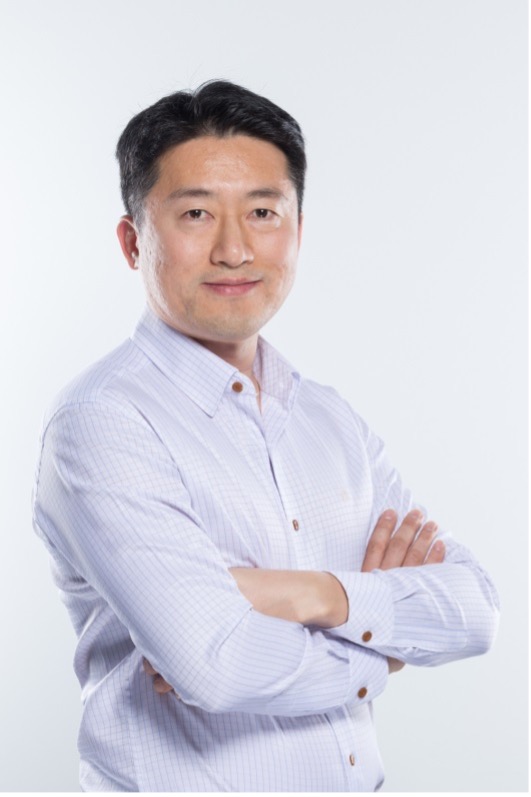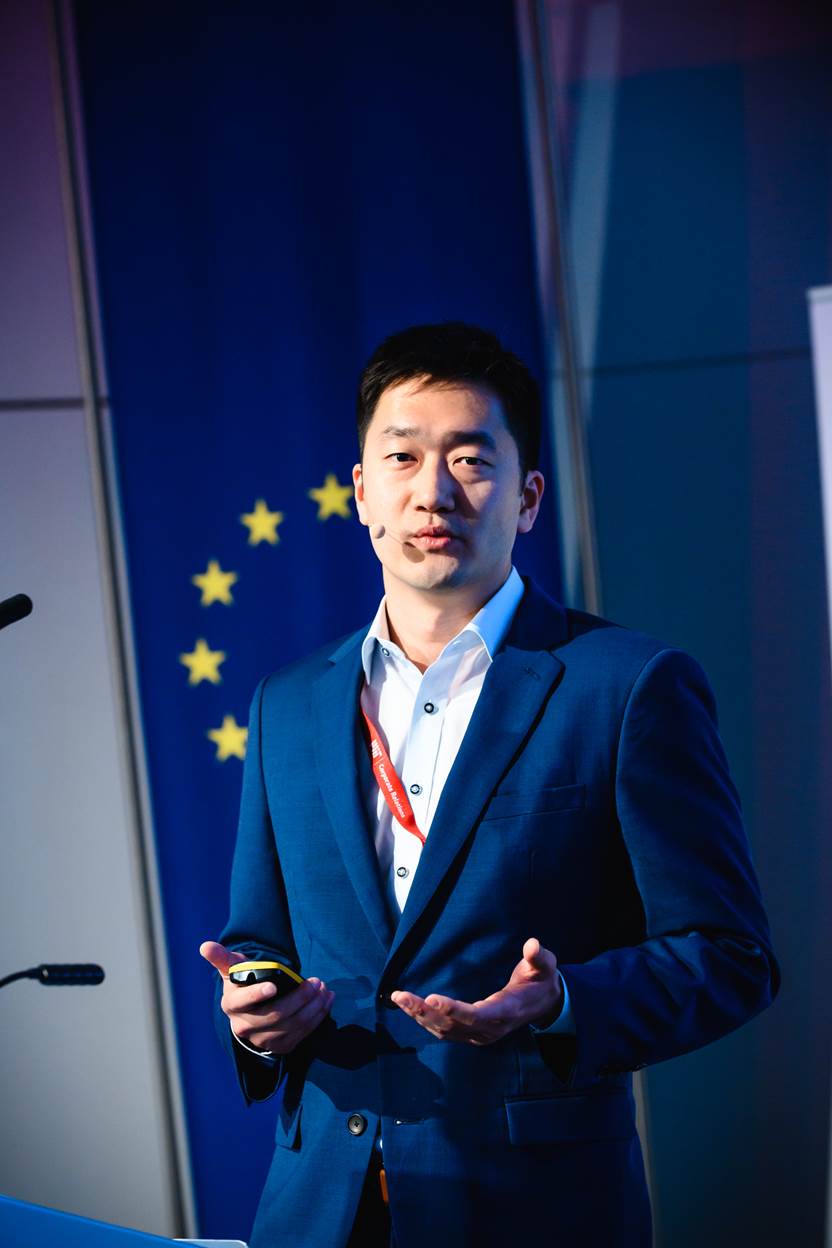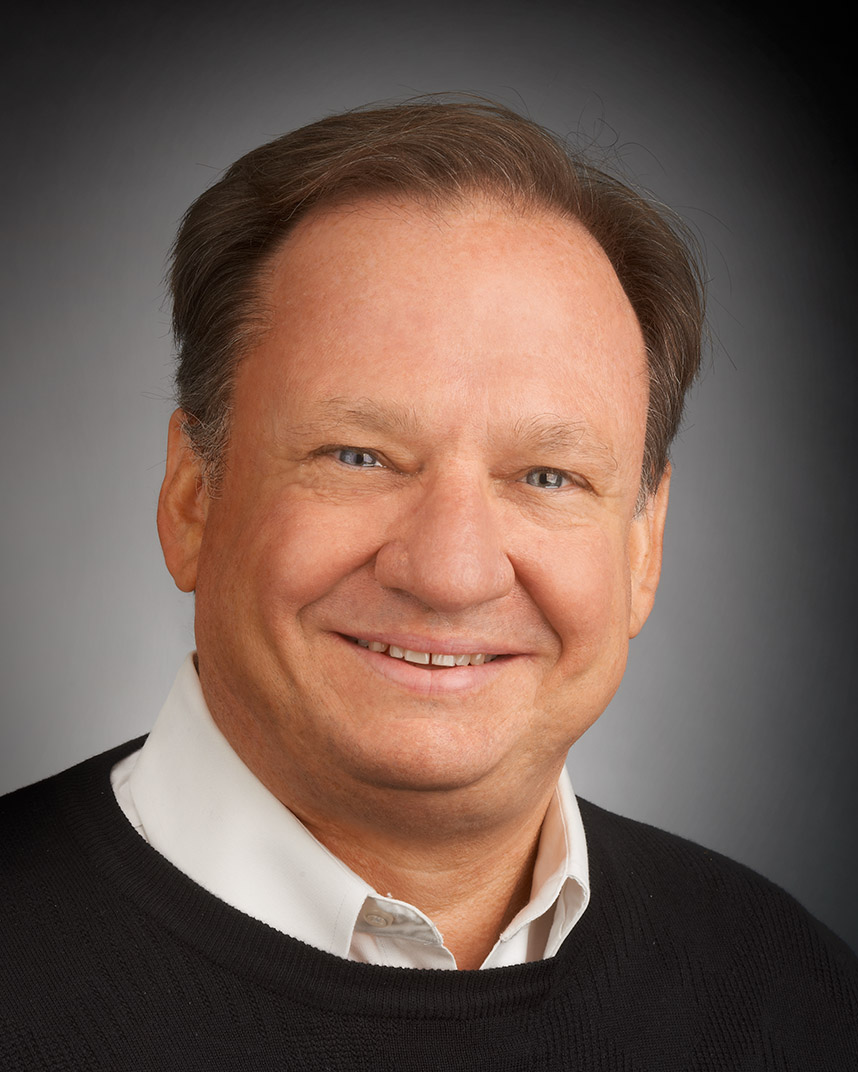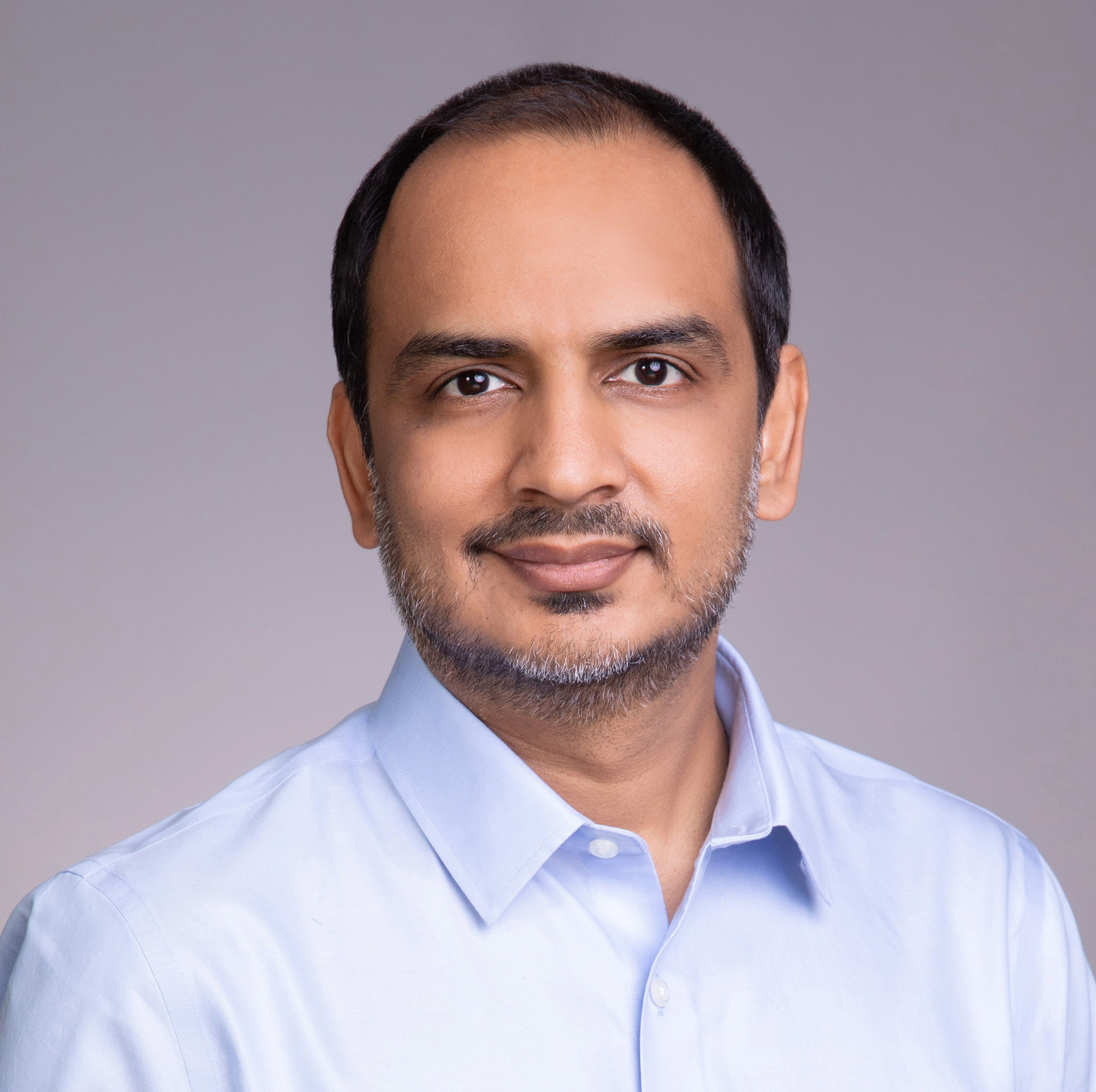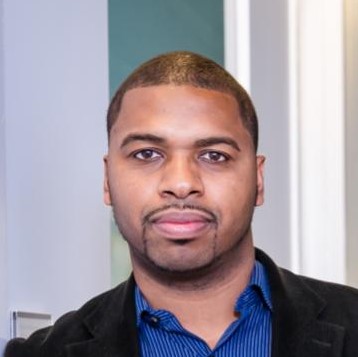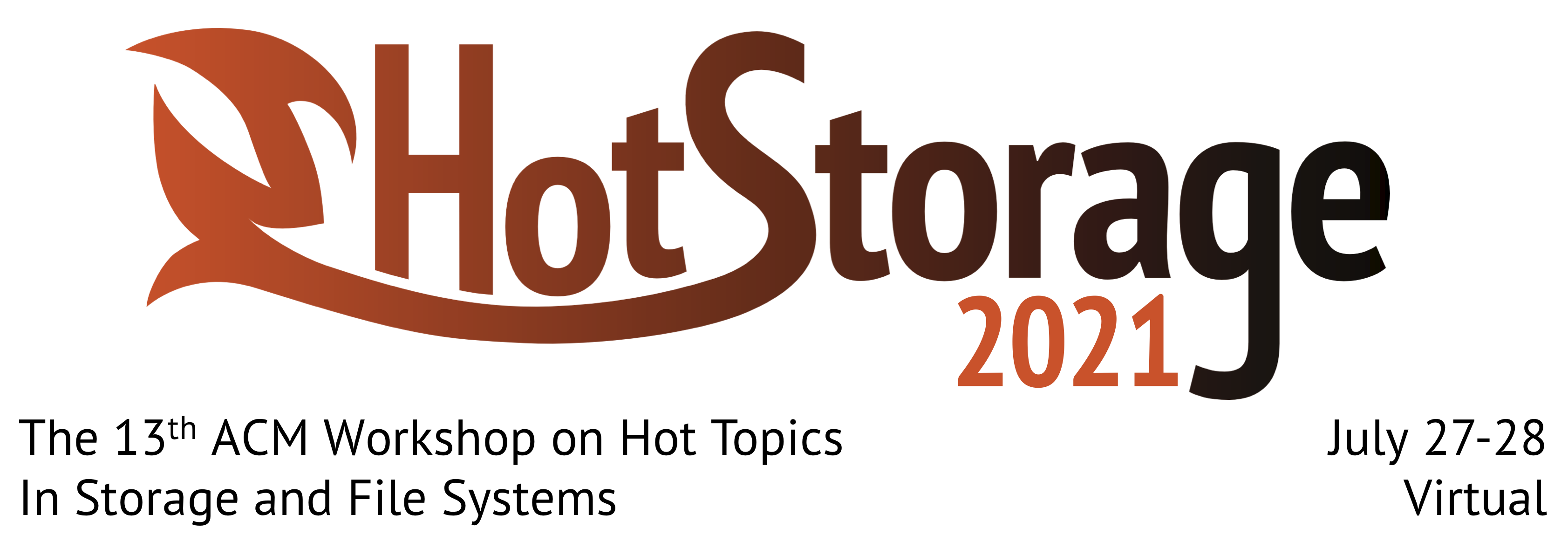
Sponsored By

In Cooperation With

Full ProgramKeynote TalkI/O Acceleration from the Bottom Up Sangyeun Cho (Samsung Electronics) [Abstract], [Speaker Bio], [Slides, [Q&A]
Abstract:
In this talk, I will capture recent advances in flash solid-state drive (SSD) technologies, especially focusing on computational storage and media geometry aware interfaces. The first system to discuss is Biscuit; it is a programming model and an implementation of the same on a flash storage system. YourSQL builds on Biscuit to achieve over 15x performance gain for top five queries of TPC-H. I will also describe a device that packages a high performance FPGA and SSD together. Next, I will talk about several recent SSD interface standards, like open-channel SSD and zoned namespace. They try to circumvent the traditional LBA interface and expose the geometry of the underlying flash media. Essentially, they aim to optimize the media usage. Despite their benefits, I observe that there are challenges to users of those interfaces, requiring further progresses. Before closing, I will discuss how SSDs can better service multi-tenancy workloads through isolation concepts and how rich usage data in the SSD can reveal opportunities for more informed server infrastructure management.
Bio:
Sangyeun Cho is a Senior VP Storage Software in the Memory Business of Samsung Electronics. He received the BS degree in computer engineering from Seoul National University in 1994 and the PhD degree in computer science from the University of Minnesota in 2002. In 1999, he joined the System LSI Business of Samsung Electronics and contributed to the development of Samsung's flagship embedded processor core family CalmRISC(TM). In 2004, he joined the faculty of the Computer Science Department at the University of Pittsburgh and was tenured in 2010. He joined Samsung’s Memory Business in 2012, where he is currently overseeing enterprise solid-state drive development programs. His technical interests are in the area of computer architecture and systems with particular focus on performance, power and reliability of data center storage systems. He is a fellow of IEEE. PanelFrom Ideas to Products, the Path of Successful Storage Startups Hyunjun Park (CEO and Co-founder, Catalog) [Speaker Bio]
Bio:
Hyunjun is passionate about using biology to address complex challenges. As co-founder and CEO of Catalog,
he is leading the effort to handle the explosion of digital information, using cutting edge tools of synthetic
biology. Hyunjun obtained his BS at Seoul National University, PhD in microbiology at the University of
Wisconsin Madison, and conducted postdoctoral research at MIT.
Hugo Patterson (CTO and Co-founder, Datrium) [Speaker Bio]
Bio:
Hugo Patterson was co-founder of Datrium which developed disaster recovery as a service software and systems that integrated high-performance primary storage capabilities with cost-effective data protection and disaster recovery orchestration for virtual machines. Hugo served in various roles including Chief Scientist, Chief Architect, CTO, and VP of Engineering. Datrium was acquired by VMware in 2020. Its technology is available in the VMware Cloud Disaster Recovery SaaS solution. Prior to Datrium, Hugo served as EMC Fellow and CTO of the Backup Recovery Systems Division of EMC which includes the Avamar, Data Domain, Disk Library, and Networker product lines. Hugo joined EMC in July of 2009 on its acquisition of Data Domain. He started at Data Domain in March 2002, shortly after its founding, and served as Chief Architect from May 2002 till December 2008 when he was named CTO. Data Domain had its IPO in 2007. From November 1999 to March 2002, Hugo was the lead architect for data availability and management at Network Appliance Inc., a provider of storage and data management solutions. There, he pioneered the use of snapshots and replication as an alternative to conventional backup by building the SnapVault product and instigating development of the Nearstore product line, which leveraged SATA disks to reduce costs. Dr. Patterson holds a B.A. in Mathematics from the University of Chicago, an M.S. in Electrical Engineering from the University of Maryland and a Ph.D. in Electrical and Computer Engineering from Carnegie Mellon University. Hugo was the inaugural recipient of the CMU Parallel Data Lab Distinguished Alumni Award. He grew up in New York City (Manhattan). Niraj Tolia (President, GM, and Co-founder, Kasten) [Speaker Bio]
Bio:
Dr. Niraj Tolia is the General Manager and President of Kasten (acquired by Veeam), which he founded in order to solve the problem of Kubernetes backup and disaster recovery. He also sits on the Governing Board of the Cloud Native Computing Foundation (CNCF). Niraj has held multiple leadership roles in the past including Senior Director of Engineering for Dell EMC's CloudBoost group and VP of Engineering, Chief Architect, and Staff Engineering at Maginatics, acquired by Dell EMC. Niraj also advises and invests in startups including Hedvig, a company acquired by Commvault. In a previous life, he was a Senior Researcher at HP Labs. Niraj received his Ph.D., MS, and BS in Computer Engineering from Carnegie Mellon University, where he was a part of the Parallel Data Lab. His research concentrated on distributed storage systems with an emphasis on deduplication and wide area network data transfer. Hakim Weatherspoon (CEO and Co-founder of Exotanium, Inc. and Associate Professor at Cornell University) [Speaker Bio]
Bio:
Hakim Weatherspoon is the Co-founder and Chief Executive Officer of Exotanium, Inc., a software-based cloud optimization company, and Professor in the Department of Computer Science at Cornell University and Associate Director for the Cornell Initiative for Digital Agriculture (CIDA). His research interests cover various aspects of fault-tolerance, reliability, security, and performance of internet-scale data systems such as cloud and distributed systems. Weatherspoon received his PhD from University of California, Berkeley. Weatherspoon has received awards for his many contributions, including an the University of Washington, Allen School of Computer Science and Engineering, Alumni Achievement Award; Alfred P. Sloan Research Fellowship; National Science Foundation CAREER Award; and a Kavli Fellowship from the National Academy of Sciences. He serves on the USENIX Board of Directors and is the Founder, Steering Committee, and General Chair for the ACM Symposium on Cloud Computing. Hakim has also been recognized for his work to promote diversity, earning Cornell's Zellman Warhaft Commitment to Diversity Award. Since 2011, he has organized the annual SoNIC Summer Research Workshop to help prepare between students from underrepresented groups to pursue their Ph.D. in computer science. ProgramDay 1: Tuesday, July 27, 2021
Day 2: Wednesday, July 28, 2021
SessionsSession 1: Flash StorageSession Chairs: Jian Huang (UIUC) and Janki Bhimani (Florida International University)
How the Common Retention Acceleration Method of 3D NAND Flash Memory Goes Wrong?
[Paper]
[Slides]
[Video]
[Q&A]
Best Paper Award Winner
Isolating Namespace and Performance in Key-Value SSDs for Multi-tenant Environments
[Paper]
[Slides]
[Video]
[Q&A]
Session 2: Distributed Storage Session Chairs: Sudarsun Kannan (Rutgers University) and Xubin He (Temple University)
Session 3: New Technologies Session Chairs: Somali Chaterji (Purdue University) and Yuan-Hao Chang (Academia Sinica, Taiwan)
Best Presentation Award Winner
Libpubl: Exploiting Persistent User Buffers as Logs for Write Atomicity
[Paper]
[Slides]
[Video]
[Q&A]
Session 4: Characterization and Verification Session Chairs: Ivy Peng (Lawrence Livermore National Laboratory) and Youyou Lu (Tsinghua University)
|

